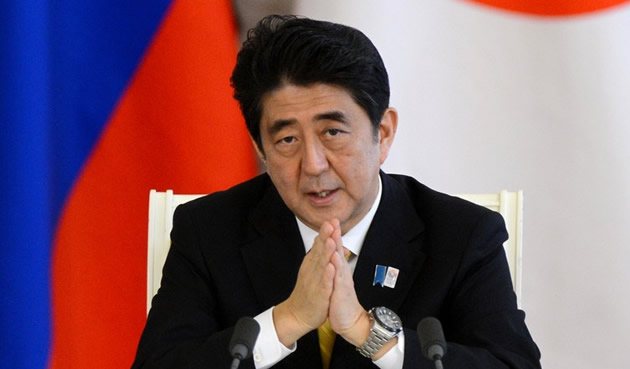Applying leadership ethics in business, politics

Panganai Kahuni Correspondent
“The mind is a kind of theatre where several perceptions make their appearance; pass, re-pass, glide away and mingle in an infinite variety of postures and situations,” says David Hume, a Scottish philosopher, historian, economist, and essayist.
Greek philosopher Aristotle understands ethics as the study of how to “live well”.
But what is to live well? Professor Mararike, in one of his Ubuntu/Unhu presentations on ZBC-Tv said; “To live well (rightly and morally) is to live in a way that achieves national goals.”
Aristotle argues that the highest human good, which is the ultimate goal of all our actions, is happiness.
Since happiness is our ultimate goal and since ethics concerns itself with achieving our ultimate goal, political leadership should concern itself with satisfying its political constituencies while business leadership should concern itself with the happiness of its business constituency.
It is strongly believed that if most of our political and business leaders concerned themselves with the happiness of their constituencies, it would be easier to achieve the ultimate goal of our actions.
Sadly, most of our leaders are concerned with their individual happiness as they amass wealth for themselves and their inner circles. An example is where some politicians amass wealth; continue to do so for their self-happiness, disregarding the majority.
Sometimes they only give goods aimed at motivating their constituencies to have a feeling that the politician has a heart.
Unluckily, the benevolence goods that some filthy rich politicians give to their constituencies are not able to trigger individual and collective happiness of the recipients. In some cases the benevolence goods are given in the hope that the recipients will continue to keep the politician in power, which power most of them use for individual happiness.
Take for instance those who practise vote buying in primary elections and congress/conference elections of political parties.
The filthy rich splash brown envelopes in order to gain support from the unsuspecting poor party cadres. The outcome of this demonic practice is the short-lived collective happiness for those receiving the money and the sense of happiness of the vote-buyer.
Instead of using their wealth to fund projects that benefit the majority of the people in their constituencies, the filthy rich do not believe in such a practice for they want to create a certain perception to appear and glide away, mingling in an infinite variety of postures and situations.
An example is what happened during the Zanu-PF National Youth Conference in Harare.
Those with dirty money were not interested in the youths enjoying ethical deliberations of the conference which would have resulted in youths being happy with the outcomes.
To demonstrate that the concern of those with money was not with youths, the vote-buyers did not think about the welfare of the youths as they did not provide them with such essential logistics like food, accommodation and transport.
We can see the strategy here was to use the vote-buying concept to create fleeting vote-buyer happiness.
The money was not aimed at strengthening the party; it was not meant for sustainable happiness for the youths but for a long viral happiness of the vote-buyer.
The youths and women who received vote-buying money should have taken an ethical leaf from Air Marshal Perrance Shiri, who shamed Tafadzwa Musekiwa and Job Sikhala when they tried to bribe him with Z$10 000 000 to become part of their satanic and devilish regime change agenda.
While this was a huge amount of money that could easily bring happiness to any recipient, the Air Marshall was guided by ethical leadership, loyalty and patriotism and shamed the devil. It must be made clear here that amassing of wealth outside the realm of national happiness is a recipe for economic disaster.
Any political, business or institutional leader who amasses wealth outside the realm of collective happiness must know that he/she is creating a generational fall-out. People must remember what happened to Idi Amin, Mobutu Sese Seko, and Augusto Pinochet, just to mention a few.
People must be reminded here that amassing wealth, vote-buying and aligning oneself to the West, is no guarantee of peace and stability.
It is no guarantee of sustainable happiness. People must remember what happened in Libya and use it as a rallying fact for unity of purpose.
The opening statement of this piece quotes Hume, who posits that several perceptions appear, pass, glide away and mingle in an infinite variety of postures and situations.
This seems to occur quite evidently with our business leadership. During the inflationary and inclusive Government era, most business leaders demanded from Government, among other things, a stable political environment, low inflation, a stable currency and no price controls in order for them to grow the economy.
Many economic analysts are of the view that most of what business leaders implored Government to provide is available but the economy is not growing.
Some of the multinational companies in Zimbabwe complain about using old machinery which many think they could easily get from foreign sister organisations, if every businessman ethically talked about the conducive environment that Zimbabwe provides.
Sadly, some business leaders and executives have a habit of denouncing Zimbabwe’s economic environment as having an effect of scaring away investors. Some believe such behaviour is motivated by the fact that most executives earn obscene salaries while most workers go for months without pay.
Currently, industry capacity utilisation is said to be standing at 30 percent. Most companies are said to be experiencing a variety of challenges, making them fail to pay workers regularly.
However, some business executives have the habit of paying themselves huge sums of money at the expense of the workers who generate that money.
The nation seems to be concerned with poor performance and obscene salaries in public utilities while the same is happening in private corporates.
While it is agreed that some corporates are faced with challenges, it is saddening to note that some executives deliberately neglect their labour force. It must be noted that capacity utilisation may not increase if the current posturing and situation does not change to motivate the workers that go for months without pay.
The scenario where the 30 percent capacity utilisation is only satisfying business leaders who are earning obscene salaries only serves to create individual happiness at the expense of collective happiness.
Thus, business leaders need to review their morality by making sure the cake is evenly shared.
- Panganai Kahuni is a political socio-economic commentator.








Comments